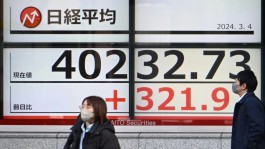90 critical days
US President Donald Trump has received the results of investigations into the impact of auto imports on national security, which could lead to the U.S. applying more tariffs on vehicles.
On the same level, a European Commission spokesman announced yesterday, Monday, that the European Union will respond quickly and conveniently if the United States imposes import duties on European cars.
The European Union issued the threat after the US Department of Commerce submitted a report, Monday, that President Donald Trump authorizes the imposition of vehicle fees within the next 90 days.
German Chancellor Angela Merkel described the report's prospect of importing European cars as a threat to US national security as a matter of terror.
The White House has previously used the national security argument, as it indicated that undermining the American industrial foundation hinders military readiness, which, in his view, justifies the imposition of large customs duties on steel and aluminum imports, according to international agencies.
Trump, who is known for his protectionist policy, has threatened to impose tariffs of 25% on European cars, targeting Germany in particular, which he says has harmed the American auto industry.
The new conflict across the two sides of the Atlantic was followed by a truce reached last July, when Trump and European Commission President Jean-Claude Juncker pledged not to impose new fees at a time when the two sides sought a limited trade agreement.
Simultaneously with the report being submitted to the White House, the auto industry has launched what is expected to be the most violent campaign against it.
The German Automobile Industry Association (VDA) said on Sunday that importing cars from Europe does not endanger US national security, echoing comments made by Angela Merkel.
On the same level, and on the expectations of this important matter for the global economy, Namazen prepared a report that gives a history and details of what Trump can do, under the title





































